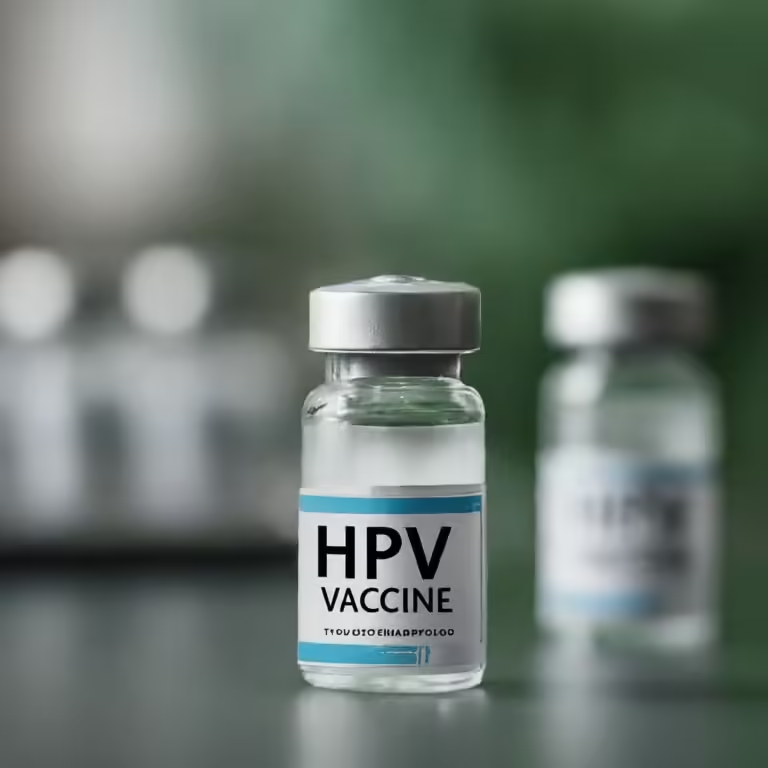Human papillomavirus (HPV) is widely recognized as the world’s most common sexually transmitted infection, often linked to various cancers. However, a new study reveals that high-risk HPV strains might also be silently compromising male fertility. This groundbreaking research from Argentina highlights the potential dangers of HPV for men, raising concerns not just about cancer but also about the virus’s impact on sperm quality and reproductive health.
How HPV Strains Affect Male Fertility
Human papillomavirus has long been associated with female reproductive health, particularly in relation to cervical cancer. However, recent studies have started to explore the virus’s potential impact on male fertility. The findings suggest that Human papillomavirus, particularly the high-risk strains, may be a significant yet overlooked factor in male infertility.
Researchers from Argentina’s National University of Córdoba have identified a worrying link between high-risk HPV strains and poor sperm quality. In their study, published in Frontiers in Cellular and Infection Microbiology, they analyzed semen samples from 205 men, revealing that those with high-risk HPV had compromised immune responses in the male genital tract. This suppression of immune cells could hinder the body’s ability to clear the virus, leaving men vulnerable to other infections that may further reduce their chances of conception.
Infertility and HPV
The connection between Human papillomavirus and male infertility is more than a hypothesis. A 2020 systematic review of 50 studies found that 21% of infertile men had HPV-positive semen, compared with just 8% in the general male population. Even after accounting for female infertility factors, men with HPV in their semen were found to have a threefold greater likelihood of being infertile than those without the virus.
How HPV Affects Women: The Link to Cervical Cancer
While this new study focuses on men, HPV’s impact on women cannot be overlooked. Human papillomavirus is a leading cause of cervical cancer, with approximately 13,800 invasive cases diagnosed annually in the U.S. alone. The virus is also linked to other forms of cancer, including vulval, vaginal, anal, and throat cancers, affecting both men and women.
Cervical cancer remains the most common Human papillomavirus-related malignancy among women. The virus’s ability to cause such widespread damage lies in its high-risk strains, which can cause cellular changes in the cervix that, if left untreated, may progress to cancer. Regular screening and early detection are crucial in preventing the progression of Human papillomavirus-induced cervical cancer.
How HPV Vaccination Can Protect You
The introduction of the Human papillomavirus vaccine has been a game-changer in the fight against Human papillomavirus-related cancers. First made available in 2006 for girls, the vaccine’s recommendation was expanded to include boys in 2011. The current version of the vaccine, administered in a two- or three-dose series, protects against nine of the most dangerous HPV strains, including those that cause genital warts.
The Centers for Disease Control and Prevention (CDC) recommends routine Human papillomavirus vaccination for all boys and girls starting at 11 or 12 years old, though it can be administered as early as age 9. The vaccine is considered exceptionally safe and effective, with studies showing that it significantly reduces the risk of HPV-related cancers.
Despite the vaccine’s success, vaccination rates remain a concern, particularly in light of disruptions caused by the COVID-19 pandemic. A CDC study published recently found that about 65% of adolescents born in 2007 were fully vaccinated for HPV by age 15, compared with 60% of those born in 2008. While the difference may seem small, it highlights the importance of maintaining and increasing vaccination rates to protect against HPV.
The Study’s Findings: High-Risk HPV and Male Infertility
In the recent Argentinian study, researchers focused on understanding how high-risk Human papillomavirus strains might be affecting male fertility. Of the 205 men studied, 19% tested positive for HPV, with high-risk strains being more common than low-risk ones. On the surface, the semen quality of men with high-risk HPV did not appear significantly different from that of men without the virus. However, a closer examination revealed critical differences.
The study found that men with high-risk Human papillomavirus strains had a lower level of certain immune cells in their semen. This suppression of immune cells suggests that the virus might be interfering with the body’s natural defenses, allowing Human papillomavirus to persist in the male genital tract. This prolonged presence of the virus could increase the risk of other infections that may further impair fertility.
Moreover, the study uncovered evidence that sperm from men with high-risk Human papillomavirus strains were more likely to suffer damage from oxidative stress, a condition where harmful free radicals damage cells. This oxidative stress could explain the higher levels of dead sperm observed in men with high-risk Human papillomavirus, potentially reducing their ability to conceive.
The Broader Implications of HPV for Men
While the focus of this study is on fertility, Human papillomavirus poses broader risks to men’s health. High-risk Human papillomavirus strains are linked to various cancers, including penile and throat cancers. The growing body of research underscores the importance of Human papillomavirus vaccination not just for preventing these cancers but also for potentially protecting male fertility.
In particular, men who have an active Human papillomavirus infection and are struggling with infertility might benefit from receiving the Human papillomavirus vaccine. Some research suggests that the vaccine could help men clear the virus more quickly, potentially improving their chances of conception. However, more research is needed to confirm this potential benefit.
The Role of HPV Testing and Vaccination
For men concerned about their fertility, testing for HPV and other sexually transmitted infections is crucial. Identifying an Human papillomavirus infection early could provide valuable insights into the causes of infertility and allow for targeted interventions.
Human papillomavirus vaccination remains one of the most effective tools for preventing Human papillomavirus-related health issues. While the vaccine is most beneficial when administered before individuals become sexually active, it can still offer protection later in life. The CDC recommends that people up to age 26 receive the vaccine if they were not previously vaccinated, and those up to age 45 may also benefit from discussing vaccination with their healthcare provider.
The findings from this study highlight the need for further research into the relationship between HPV and male fertility. The study’s authors hope to see larger studies that can provide more definitive answers and guide future public health recommendations. As our understanding of Human papillomavirus continues to evolve, it’s clear that both men and women must remain vigilant about the risks associated with this common virus.
Human papillomavirus is more than just a virus that causes warts or cancer—it may also be a hidden factor in male infertility. This new research adds to the growing body of evidence that highlights the importance of Human papillomavirus vaccination for both men and women. By protecting against high-risk Human papillomavirus strains, the vaccine not only helps prevent cancer but could also safeguard reproductive health. As we continue to learn more about Human papillomavirus, one thing is clear: vaccination and regular screenings are essential steps in protecting your health and fertility.




Pingback: Understanding Migraines: Symptoms, Types, Causes, Effective Treatments and 3 proven preventive steps - Healing Doctor
Pingback: Parvovirus B19—The 'Slapped Cheek' Virus Spreads Across the U.S. - Healing Doctor